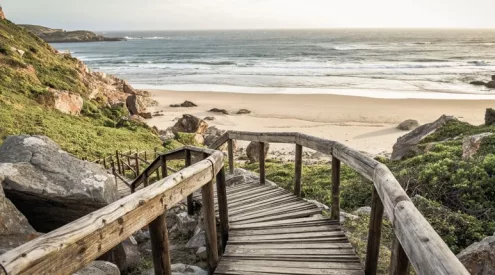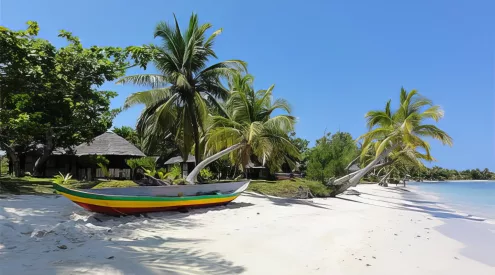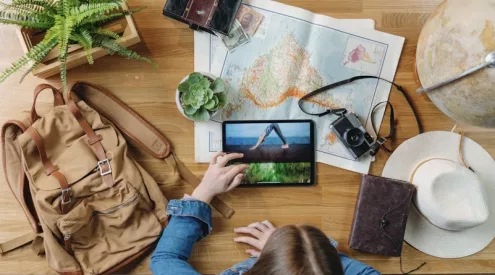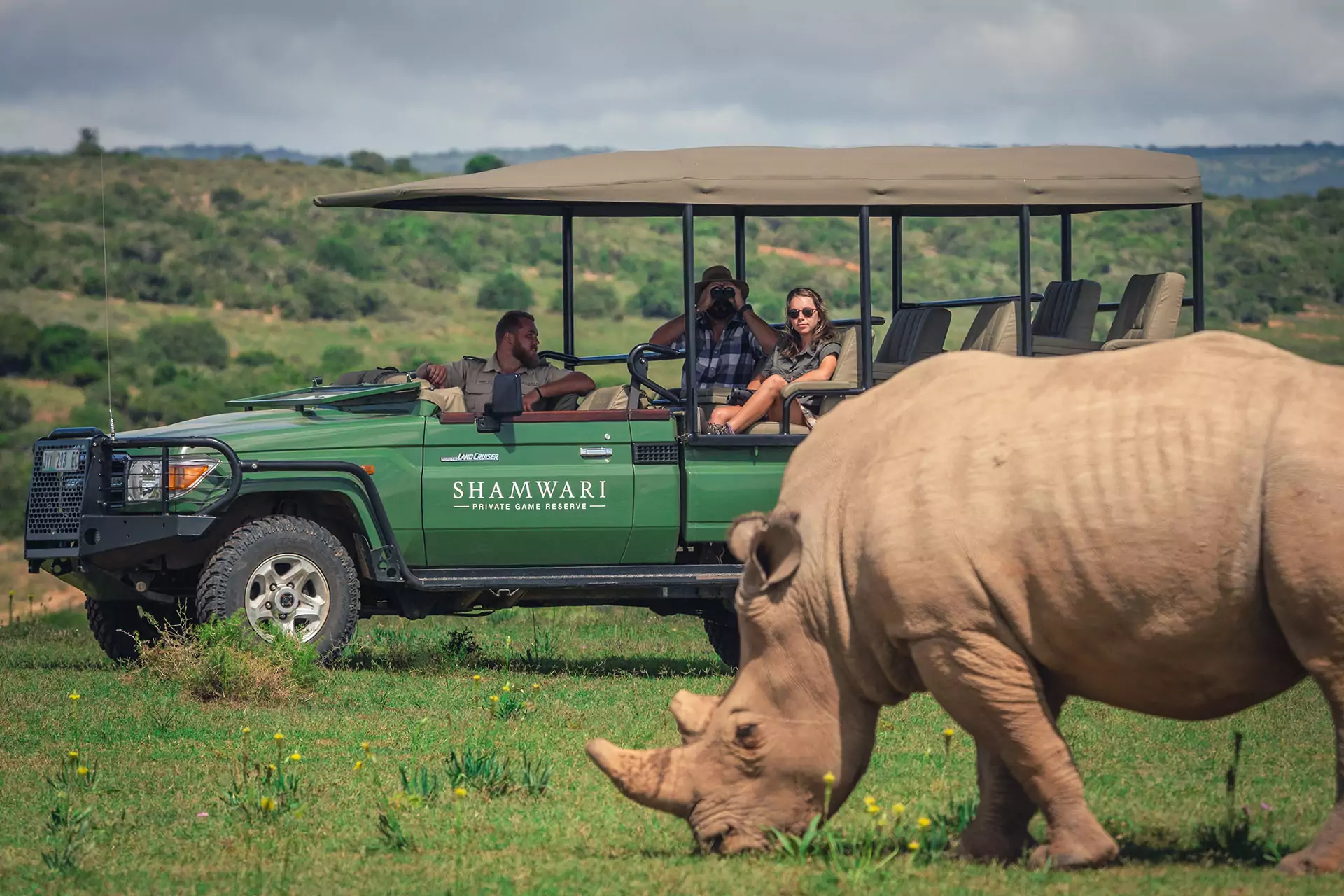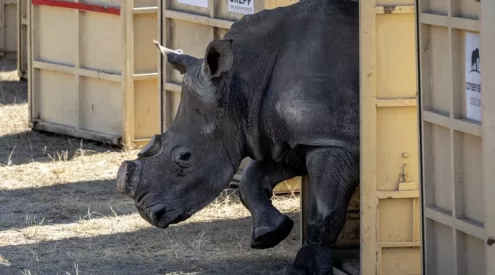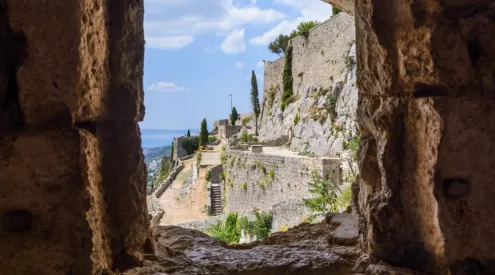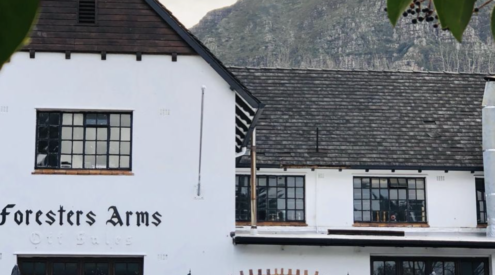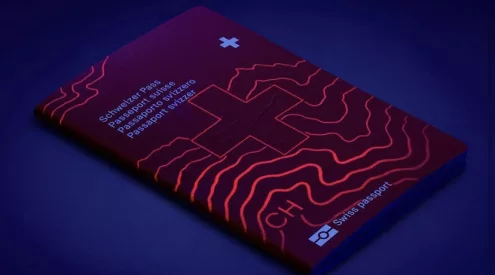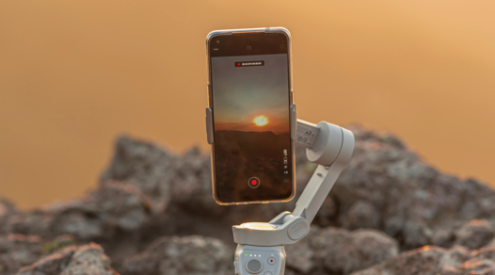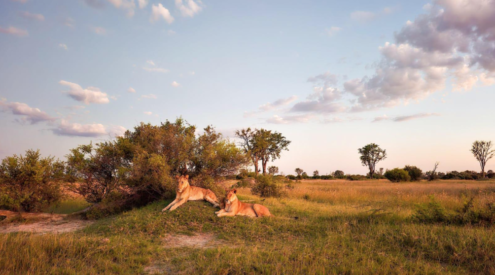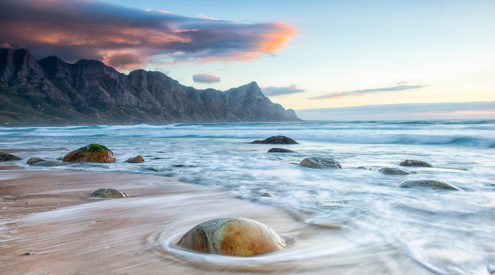While I am certainly no professional photographer and don’t even own a D-SLR camera, many comment on my digital media and love that I regularly share my adventures with the world”¦ so I thought I would share some of what I have learned over the years, much of which was learned the hard way.
Save weight & space:
We all hate struggling with heavy luggage while on holiday, so only take what is needed and be conscious of weight and bulk. Easiest way to do this is ensure that as much of what you take as possible can multitask and fulfil multiple roles.
This is especially relevant with power. Cables and power supplies are weighty and bulky, and are sometimes even mistaken for bomb components by airport X-rays. So, by standardising on charging equipment across your tech, you can save weight and eliminate that mess of cables that needs to be plugged in every evening.
It also helps if you lose a cable or connector somewhere, as multiple items will be able to use the same cables. USB is a great example of this, as many phones, batteries and cameras now charge over USB.
I rely on a 4x USB adaptor which fits into a 2-prong wall socket. This way my camera, phone, MP3 player & GPS tracking unit all charge from one power source. Neat hey?!
Choosing the right gear:
With weight, space and standardisation of power in mind, think about what you’re wanting to do with those memories. Unless you a professional photographer with submissions lined up and already take the ultimate photograph, is there much point in taking the massive and bulky D-SLR with five different lenses and another handful of filters? Are you shooting a documentary for National Geographic or popping some clips on YouTube?
Traditional “point & shoot” cameras now offer millions of pixels and amazing quality, so unless you are a pro there isn’t much need for the big guns. Most of them offer video too, and some now boast HD video”¦ so you can still show your clips on your HD plasma or LCD once back at home.
I’d rather capture everything at any time irrespective of conditions. My kit is chosen to be as hardwearing as I am hard on it, and cope with whatever I decide to do. From scrambling up a hill to diving into a river [or sliding down a slope on my bum because I can’t ski], I’d rather capture those moments than the typical “this is a trail and everything walking on it” kinda pics.
This is quite important when visiting Europe or areas known for thunderstorms, as there is nothing worse than saying “Wow, would be so great capturing this right now”¦ but I can’t risk my camera getting wet”.
I’m certainly not saying go out and buy fancy underwater housings and rain jackets for your digital goods! There are several great pocket sized cameras that are weatherproof and waterproof to start with, each with their own pro’s and con’s. Yes, they’re generally a little more expensive than the regular cameras of similar spec, but are considerably cheaper than a camera plus waterproof housing together.
For the stuff further away and for the lowlight conditions, you can opt for a slightly bigger camera with a nice zoom”¦ but still no need to go with the D-SLR and all it’s accessories.
What to shoot:
Yes, there are certain shots one just has to take. Get the pic of the family at the gate of Kruger for the family album and of the campsite at night. But save the batteries for those chance, once in a lifetime experiences of the elephant coming out of the bush right next to the vehicle and nudging the car, or your friend imitating a baboon in a national park [you can blackmail him for years to come, or embarrass him by posting it on Facebook – ].
Look for the different angles, the special places and stuff that you don’t see in every other magazine. Feel free to lie down on the ground, stand on a chair or climb a tree. Everyone sees everything at eye level, so capture it from a different angle!
For the little ones, go for the cute & cuddly stuff”¦ playing with the lion cubs, chasing the warthogs and ducks, passed out under a baobab tree.
EQUIPMENT I RELY ON:
Camera: Olympus Tough 8010
Basic specs: 14 megapixel, 2m shockproof, 10m waterproof, 5x wide optical zoom, HDMI out, power over USB
Being waterproof & shockproof, this is the ideal companion for the “˜point & shoot’ moments, irrespective of what you’re doing. This is equally at home in the hills, on the bicycle and under the waves.
Downside is definitely the zoom [very limited] and lowlight shooting [use a tripod & play with the settings”¦ you can make it work]. But everything else you can do with it certainly makes up for these shortfalls.
One thing I would recommend you do is change the wrist-strap for something a little stronger. I’ve had two break on my already, and the last thing you want to happen is have your beloved camera fall beyond your reach when high on a rock face or snorkelling an atoll.
Available at www.olympus.com
Phone / On the go: Nokia E71
Basic specs: 3G smartphone, android operating system, qwerty keyboard, microSD slot, 3MP camera for stills & video, A-GPS with free navigation
Quick updates to family and friends are made easy thanks to this mobile business centre. Bar video editing and photo retouching, everything you may need to do while out and about can be done on this sleek unit.
I’m pretty close to ditching the laptop altogether when on the trail, as this saves me weight and bulk and is far less power hungry.
Get mobile at www.nokia.com
Tripod: Joby Gorillapod Mobile
Basic specs: Flexible leg tripod that can cling to everything from trees to equipment, weighs just 45g, supports up to 325g, comes with standard camera mount as well as suction cup and adhesive pad.
I hate a conventional tripod. They’re bulky, heavy and never stand nicely on uneven terrain. Enter the Gorillapod! As the name suggests, they like to cling to things and quickly turn every item into a playground. Be it a tree, pole or piece of equipment, this will enable to take a new league of photographs from angles you never considered”¦ and with you in the photo for a change.
Be sure to check the weight of your camera though, as the various models can support certain weights”¦ and the last thing you need is a floppy.
If you just need the camera mount, try the Original”¦ or, if you’re feeling fancy and want to stick the tripod on the car or other metallic structures, try the Magnetic version.
The world is your tripod at www.joby.com
Power generation: Sunlinq 6.5W SolarBlanket
Basic specs: flexible and glass-free solar panel, weatherproof, small when folded, just 200g, built-in grommets for easy attachment, comes with variety of tips [male cigarette, female cigarette, 12V barrel, crocodile clips] and extension cable
I first used this back in 2007 when cycling across SA, and put it through hell. Rain, dust, tar, mud and countless hours of sun, and it looked new when I got home. During the 41 days it kept everything except my laptop powered, and fitted easily on my bicycle trailer as well as on my daypack.
Whether hiking, cycling or camping, this green power plant travels with me and keeps my tech going.
More power at www.flexopower.com
Power storage: Tekken MP-3450
Basic specs: up to 19V power, power over USB or a variety of adaptors [9 tips included].
Because there are times without sun, you need a little something extra to keep all your gadgets going. This can charge off the mains or a slightly larger solar panel and will ensure you don’t miss a photo or go without light.
Get powered up at www.flexopower.com
Lighting: Petzl Tikka XP 2
Basic specs: uses 3 x AAA batteries, up to 160hrs, 88g, wide & spot beam, 60 lumens, 60m, five lighting modes [3 x white & 2 x red, including 1 blinking each].
Finding your way around camp, finding camp, or providing some interesting lighting for your evening videos”¦ no worries with this monster. Good power efficiency and super lightweight, this provides a great beam and I love the red light. Even comes with an emergency whistle on the elastic strap.
More info at www.petzl.com
POPULAR PLATFORMS:
Facebook:
With so many people being on Facebook these days, it provides a simple way to share your adventure and experiences. From “˜status updates’ to notes, photos to videos, you can share just about every aspect without much effort at all. Visit www.facebook.com
Flickr:
Travelling something out of the ordinary? Using a GPS-enabled camera or have GPS data available? Geo-tagging is possible on Flickr, so those checking your pics can see exactly where the event occurred. Check out www.flickr.com
YouTube:
If you’re not into Facebook or don’t want to be found all that easily, setup a YouTube channel and upload your videos here. It’s a great place to host your videos and share with the world, and you can even send people “embed” info so that they can include the video player in their site / blog [great for friends and family who were on the trip with you]. Get sharing at www.youtube.com
MORE INFORMATION:
I’ll be speaking on digital media for adventure at the inaugural FEAT [Fascinating Expeditions & Adventure Talks] event at Wits University on Thursday 7 October 2011. Be sure to join us on the night for more in-depth information and a host of other speakers. Visit www.featsa.co.za for more information.

